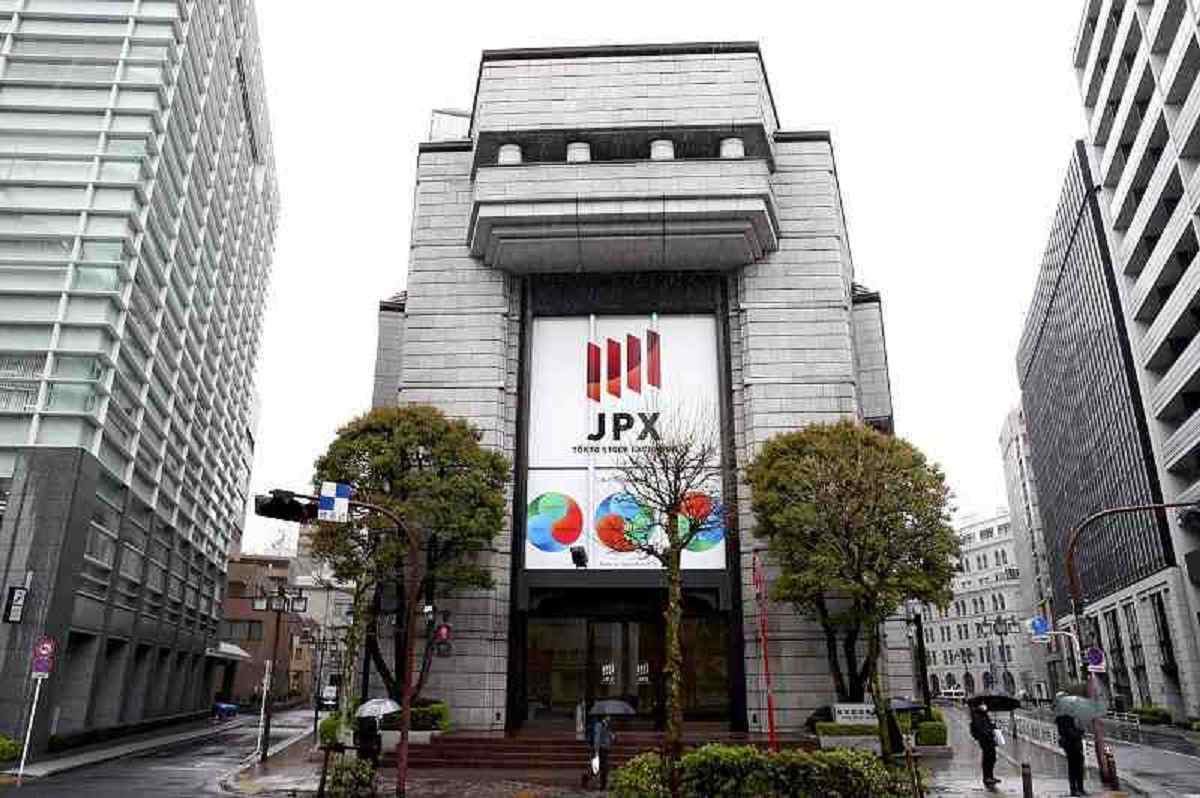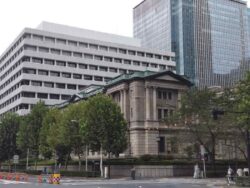Japan’s Nikkei Stock Average: Japanese Shares Rebound Sharply after Biggest Sell-Off Since 1987 Black Monday Rout

Tokyo Stock Exchange
13:21 JST, August 6, 2024
TOKYO (Reuters) – Japanese stocks rebounded sharply in morning trade on Tuesday, after their biggest single day rout since the 1987 Black Monday sell-off in the previous session.
The Nikkei rallied 9.4% at 34,416.32 as of the midday break, while the broader Topix was up 9.3%at 2,434.21.
The Nikkei was last up 2,957.9 points after rising over 3,000 points earlier in the session, surpassing its largest intraday points gain on record.
The benchmark index plunged 12.4% on Monday in its worst performance since the October 1987 crash, as investors were shaken by last week’s plunge in global stock markets, U.S. recession risks, and worries investments funded by a cheap yen were being unwound.
Khoon Goh, head of Asia research at ANZ, noted that the Nikkei also rebounded to varying degrees after the three previous occasions when it experienced double digit declines, including in the wake of the global financial crisis in 2008 and Tohoku earthquake in 2011.
“But it took a while before the Nikkei clawed back all those losses,” he said.
From July 11 to Monday’s close of 31,458.42, the Nikkei has seen 113 trillion yen ($792 billion) wiped off that peak market value.
Monday’s collapse was a “reminder that it is next-to-impossible to diversify equity risk by region (or by sector or style) during major corrections or bear markets,” said Stephen Dover, chief market strategist and head of Franklin Templeton Institute at Franklin Templeton.
“Opportunity will arise, but in our view, it is premature to step in at this point.”
On Tuesday, large price rebounds were led by big name technology shares such as chip-related stocks Tokyo Electron, up over 16%, and Advantest, rising 14.5%.
AI-focused startup investor SoftBank Group jumped 9.3%.
Circuit breakers were triggered multiple times before and during the morning session, causing the temporary suspension of trading in Topix and Nikkei futures.
Last week, the Bank of Japan (BOJ) raised interest rates to levels unseen in 15 years, a hawkish move that analysts also say spooked the market especially given fears of a possible U.S. recession.
“The market was afraid (the BOJ) may tighten too fast,” said Kenji Abe, chief strategist at Daiwa Securities.
BlackRock Investment Institute said on Tuesday that they see a “greater risk of a BOJ policy misstep” and are reviewing their Japan overweight position.
Top Articles in News Services
-

Survey Shows False Election Info Perceived as True
-

Hong Kong Ex-Publisher Jimmy Lai’s Sentence Raises International Outcry as China Defends It
-

Japan’s Nikkei Stock Average Touches 58,000 as Yen, Jgbs Rally on Election Fallout (UPDATE 1)
-

Japan’s Nikkei Stock Average Falls as US-Iran Tensions Unsettle Investors (UPDATE 1)
-

Trump Names Former Federal Reserve Governor Warsh as the Next Fed Chair, Replacing Powell
JN ACCESS RANKING
-

Producer Behind Pop Group XG Arrested for Cocaine Possession
-

Japan PM Takaichi’s Cabinet Resigns en Masse
-

Man Infected with Measles Reportedly Dined at Restaurant in Tokyo Station
-

Israeli Ambassador to Japan Speaks about Japan’s Role in the Reconstruction of Gaza
-

Videos Plagiarized, Reposted with False Subtitles Claiming ‘Ryukyu Belongs to China’; Anti-China False Information Also Posted in Japan
























